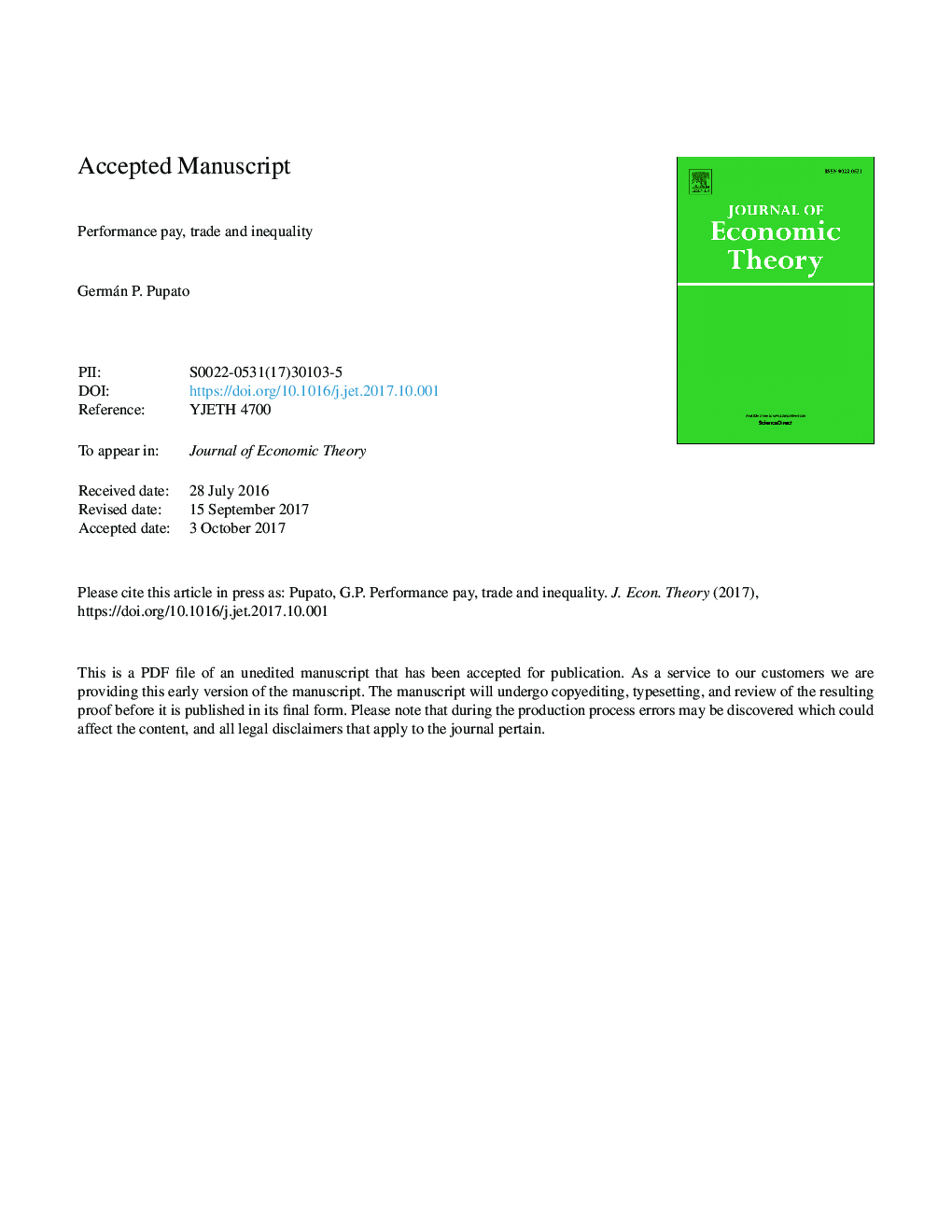| Article ID | Journal | Published Year | Pages | File Type |
|---|---|---|---|---|
| 7359337 | Journal of Economic Theory | 2017 | 41 Pages |
Abstract
This paper introduces moral hazard into a general equilibrium model with heterogeneous firms to study wage inequality between homogeneous workers. Optimal performance pay contracts yield non-degenerate wage distributions among co-workers, enabling the analysis of two conceptually distinct and empirically relevant dimensions of wage dispersion: between-firm and within-firm inequality. The latter remains virtually unexplored in the literature. As an application, I characterize analytically the impact of trade liberalization on within-firm inequality, highlighting a new channel through which international trade can contribute to residual wage dispersion. To motivate the theory, I show that the model is consistent with cross-firm empirical patterns in residual wage dispersion and performance pay using nationally representative, matched employer-employee data from Canada.
Related Topics
Social Sciences and Humanities
Economics, Econometrics and Finance
Economics and Econometrics
Authors
Germán Pupato,
